When the human rights of a group of people are violated in a society, it is the whole of society that suffers the consequences. The international community has recognized this and has endorsed human rights laws that ban discrimination – including religious discrimination of all kinds.
What Is Discrimination?
“We all have the right to be treated equally, regardless of our race, ethnicity, nationality, class, caste, religion, belief, sex, gender, language, sexual orientation, gender identity, sex characteristics, age, health or other status. Yet all too often we hear heartbreaking stories of people who suffer cruelty simply for belonging to a ‘different’ group from those in positions of privilege or power,” declares Amnesty International.
“Discrimination occurs when a person is unable to enjoy his or her human rights or other legal rights on an equal basis with others because of an unjustified distinction made in policy, law or treatment.”
In countries where a particular religion is the foundation of the government, with applies religious laws, the role played by religious discrimination is more pronounced. One of these countries is the Islamic Republic of Iran where not only the laws are based on a specific religion but this religion is even included in its official name.
Before examining religious discrimination in Iran we should look at the United Nations’ covenants to better understand the gulf between international standards and the rights granted to religious minorities in Iran.
UN Conventions Against Discrimination
World War II, one of the most tragic events in human history that took the lives of tens of millions of people, occurred against a distinct backdrop of discrimination. By dividing humanity into “us” and “others”, the Nazis and the fascists murdered Jews, numerous other minorities, and the followers of other ideologies.
The devastating experience of this world war impelled the international community to take steps to prevent such a tragedy from happening again. The first step was the Universal Declaration of Human Rights that was passed by the General Assembly of the newly-founded United Nations on December 10, 1948. Article 2 of this document bans discrimination: “Everyone is entitled to all the rights and freedoms set forth in this Declaration, without distinction of any kind, such as race, color, sex, language, religion, political or other opinion, national or social origin, property, birth or other status. Furthermore, no distinction shall be made on the basis of the political, jurisdictional or international status of the country or territory to which a person belongs, whether it be independent, trust, non-self-governing or under any other limitation of sovereignty.”
This declaration became the basis of other international covenants and conventions. Besides the International Covenant on Civil and Political Rights and the International Covenant on Economic, Social and Cultural Rights, other covenants followed that directly addressed various forms of discrimination. The International Convention on the Elimination of All Forms of Racial Discrimination, which passed in 1965 and came into force in 1969, pledges all signatories to eradicate all forms of racial discrimination. Other covenants that followed, such as the Convention on the Elimination of All Forms of Discrimination against Women and the Convention on the Rights of Persons with Disabilities, were all based on the Universal Declaration of Human Rights.
The issue of religion, however, is a sensitive one. Politicians can be more cautious when it comes to religious discrimination. As a result, the role of the media and non-governmental organizations in exposing religious discrimination becomes more important.
What goes on in Iran at the present time violates international covenants, especially the Universal Declaration of Human Rights, even though the Islamic Republic is a signatory to many of them.
The Present Situation and Future Prospects in Iran
The situation of the followers of minority religions in Iran deteriorated noticeably after the 1979 Islamic Revolution and the passing of laws based on Islamic jurisprudence as interpreted by the new regime.
Article 13 of the Islamic Republic states that “Zoroastrian, Jewish, and Christian Iranians are the only recognized religious minorities [emphasis added] who, within the limits of the law, are free to perform their religious rites and ceremonies, and to act according to their own canon in matters of personal affairs and religious education.” And Article 12 makes it clear that “The official religion of Iran is Islam and the Twelver Jafari school [of Shiism] and this principle will remain eternally immutable”. Other Islamic schools, including the Hanafi, Shafi'i, Maliki, Hanbali, and Zaydi, are to be accorded “full respect”.
In other words, many Iranians who believe in religions other than those specified in these two articles of the constitution, are not recognized by the Islamic Republic. Baha’is, Yarsans, Mandaeans (followers of John the Baptist), atheists and agnostics are denied many basic rights and are even banned from universities if they do not hide their beliefs.
Discrimination against minorities, however, is not limited to the followers of unrecognized religions. Discriminations and pressure faced by minorities includes extensive and persistent antisemitism, pressure on Armenian and Assyrian Christians to keep converts out of their churches and refusing to issue permits to Sunni Muslims for constructing mosques.
In the past year more laws were passed to further limit the freedom of religious minorities. A bill called “Additions to Book 5 of the Islamic Penal Code (ta’zir [punishment for offenses at the discretion of a judge] crimes and deterrent punishments) on insulting legal religions and Iranian ethnic groups” that was passed by Iran’s parliament in May 2020 was approved by the Guardian Council and became law.
The new laws impose harsh punishments on “anyone who insults Iranian ethnicities with the intent to cause discord, violence or tensions in society or with the knowledge that such [consequences] will follow or with the same intention or knowledge, directs explicit curses/expletives at divine religions recognized under the Constitution.” The law imposes a punishment of between two and five years in prison and/or a monetary fine in cases where discord or violence are caused by the prohibited conduct. It imposes heavy punishments on anyone who commits “any deviant educational or proselytizing activity that contradicts or interferes with the sacred law of Islam” when it is – among others – part of a “sect”, or through the use of “mind control methods and psychological indoctrination”. The proscribed activities include “making false claims or lying in religious and Islamic spheres, such as claiming divinity.”
In a statement, the human rights organization Article 19 called the two new articles that were added to Iran’s Islamic Penal Code “a threat to anyone who refuses to subscribe to state-sanctioned beliefs and ideologies [and] they will disproportionately impact individuals belonging to religious and faith-based minorities and ethnic groups” and called for their immediate repeal.
“In just a few weeks, Iran’s law enforcement and prosecutorial and judicial authorities will be equipped with an even more expansive set of repressive laws to further choke freedoms and crack down on the already persecuted individuals and groups solely for exercising their human rights,” said Saloua Ghazouani, Director of Article 19’s Middle East and North Africa Program.
The legislative branch aside, the past shows that political changes in the executive branch have also failed to improve the situation of minorities in Iran in any meaningful way.
For instance, soon after it took power, the administration of former president Hassan Rouhani, usually regarded as a moderate government, appointed Ali Younesi as Special Assistant to the President for Ethnic and Religious Minorities' Affairs. In an interview with IranWire, Termida Sahi Zahrouni, a Mandaean cleric in Khuzestan who, along with other elders of the Mandaean community, had met with Ali Younesi; later, he said he had reached the conclusion that the situation for Mandaeans was hopeless, and decided to leave the country after realizing that the efforts to improve matters had come to nothing.
More hardline Iranian administrations do not even pay lip service to minorities – unlike what Rouhani may have done – and it is not expected that President Ebrahim Raisi’s new government has any serious plans to ease religious discrimination.
Changes in the judiciary branch, whose chiefs are directly appointed by the Supreme Leader from among the most hardline members of the ruling clergy, also offer few or no prospects for change. The new Chief Justice Gholam Hossein Mohseni Ejei, who was recently appointed to his position, has been accused of violating human rights and has been on the European Union’s sanctions list since 2011.
IranWire’s Efforts in Support of the Rights of Religious Minorities
IranWire has tried to support the rights of religious minorities by covering the news about them, by offering legal counsel, by holding webinars and by inviting Iranian citizens to participate in these efforts.
If you have been subjected to religious discrimination and persecution you can report it here.
News on Religious Minorities
IranWire’s efforts to support the rights of religious minorities has included reports about the arrests of Baha’i citizens, confiscation of Baha’i properties, harassment of the Sunni clergy, analysis of laws and practices that affect the rights of minorities such as Christian converts and many more cases of harassment, discrimination and violations of their human rights. This reporting will continue.
If you have any reliable news or stories about religious minorities in Iran that you believe must be heard, you can send it to us by emailing [email protected].
Legal Counsel
We have endeavored to answer legal questions by members of minority groups with the help of lawyers. Some of these questions and answers have been published on IranWire’s website, including the right of Yarsans to higher education, the laws regarding Iranians who want to learn Hebrew, the rights of Zaidi and Ismaili Shias, the right of Christian converts to join Armenian and Assyrian churches and the marriage of a Muslim woman to a Jewish man.
We will continue this series of question and answers and if you have any questions about the rights of religious minorities in Iran you can contact us by emailing [email protected].
IranWire will additionally provide more precise legal analyses of violations of the rights of minorities in separate articles.
Profiling Key Minority Figures in Iran’s Contemporary History
Countless members of religious minority figures have contributed greatly to modern-day Iranian culture, arts and science. Our Persian service has been compiling a series of long-form features profiling prominent members of religious minorities who had an impact on the course of the country in recent decades.
This series is continuing and is updated regularly. If you are familiar with the life of such a figure and believe that they should be included, please contact us and help us to make it more comprehensive.
Minority Physicians and Martyrs of the 1980-88 Iran-Iraq War
In late 2020, at a time when health workers the world over were rightly being recognized for their dedication and bravery, IranWire also initiated a series of features on Baha'i physicians and medical practitioners who lost their jobs and sometimes their lives, prematurely, under the Islamic Republic. Many of the subjects were fired, detained, harassed, tortured, or executed after the Islamic Revolution, robbing the country of expertise that might have been shared for decades more. Many others left the country.
We have also profiled numerous Jewish Iranians and Iranian Baha’is who died defending their homeland in the Iran-Iraq War. IranWire plans to extend these series to include the contribution of other minorities to the defense of the country and welcomes the help of its readers.
Webinars
IranWire is bringing together thinkers and followers of different global religions to discuss an array of topics and how they apply in the Iranian context in a special webinar series. Four webinars have been held so far, covering the death penalty and religion, gender equality, politics and religion and antisemitism and Holocaust-denial in Iran. These webinars will continue by covering other issues. If you would like to participate in or suggest a topic for future discussions, you are welcome to get in touch by emailing [email protected].
The Rights of Lesser-Known Religious Minorities
Colleagues of IranWire have been trying to shed light on the situation of those religious minorities that have received less attention in recent years such as Ismaili Shias and the Mandaeans. In recent decades, unfortunately, some minorities like Sikhs in Baluchistan who have lived in Iran for centuries are disappearing.
IranWire plans to have more coverage on Iran’s religious diversity – and the threats to the survival of this diversity.
The Atlas of Religious Minorities
Knowing a little about the attitudes and beliefs of people around us, and being familiar with their historic customs and traditions, can help in the collective transition from xenophobia and closed-mindedness to altruism and mutual respect.
Despite the fact that we live in a digital age, and despite amazing advances in information and communication technologies, the absence of a website that can offer Persian speakers information about all religious groups in Iran, their places of worship, their schools, their rites and their traditions, is deeply felt.
With this in mind, we created an easy-to-access resource for Persian speakers to learn more about their compatriots of different faiths. IranWire’s Atlas of Religious Minorities began publishing on March 10 this year. It contains a wealth of information related to Iran’s various religions (both official and unofficial) and sects, as well as rolling news about Mandaeans, Jews, Yarsans, Christians, Zoroastrians, Baha'is, Gonabadi dervishes, and other religious minorities
To contribute to any of these projects, or to share your ideas on how we might improve our coverage of religious minorities in Iran, please email [email protected].
Readers’ Participation
Readers were also invited to take part in our "We Are Iran" contest. IranWire’s Persian team issued a callout for exclusive photographs, videos and text submissions that capture the coexistence of different religions in Iran, or bring to light previously-unreported information pertaining to religious minorities in the country.
The names of the winners of this contest were announced on November 11, 2021, and their contributions have been published separately.
Citizen journalists have provided some of the most interesting reports about religious minorities, from a report about a Jewish historical bathhouse in Tehran, which is now on Iran’s national heritage list, to Ezra Yaghoub Synagogue, one of oldest synagogues in Tehran. IranWire has also published interviews with members of religious minorities who have shared their experiences with our readers.
Again, we invite all our readers to share their stories of religious minorities in Iran by emailing us at [email protected].
Related coverage:
Help Us Keep Covering Religious Minorities in Iran
US Government Publishes Overview of Iran's Crimes Against Religious Minorities
Unique Gathering of Religions in an IranWire Webinar on Gender in Iran
How a Textbook in Iran Portrays Minorities and Identity
Religious Minorities in Iranian Schools: From Childhood Wounds to Adult Suffering
Four Decades of Discrimination Against Sunnis in Iran
Blood money, Inheritance and Property: Religious Discrimination in Iranian Law
"Iran Without Hate" Campaign for Baha'is Attracts Widespread Support
Increase in Anti-Baha'i Propaganda in Iran Prompts Call for Accountability
The Islamic Republic's Intolerance to Christian Converts, Explained
visit the accountability section
In this section of Iran Wire, you can contact the officials and launch your campaign for various problems




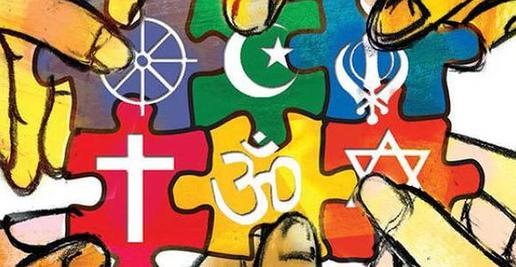










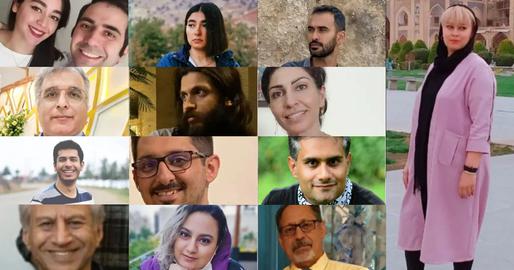
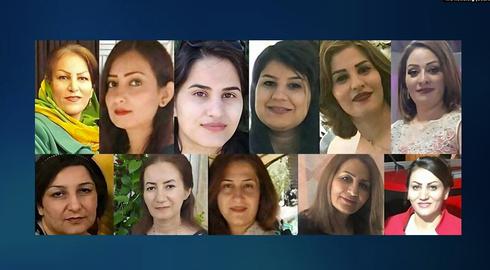

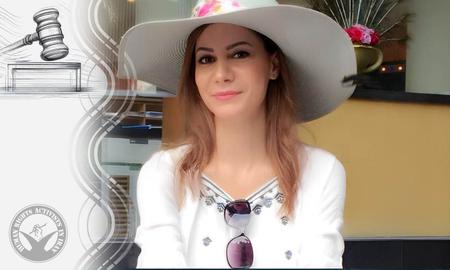




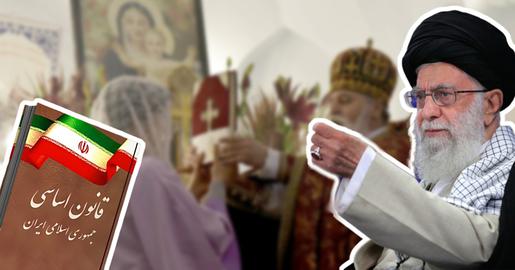

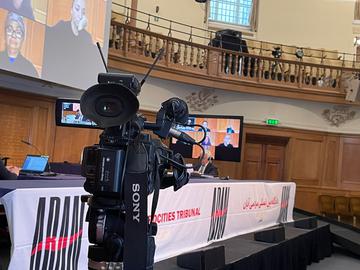
comments